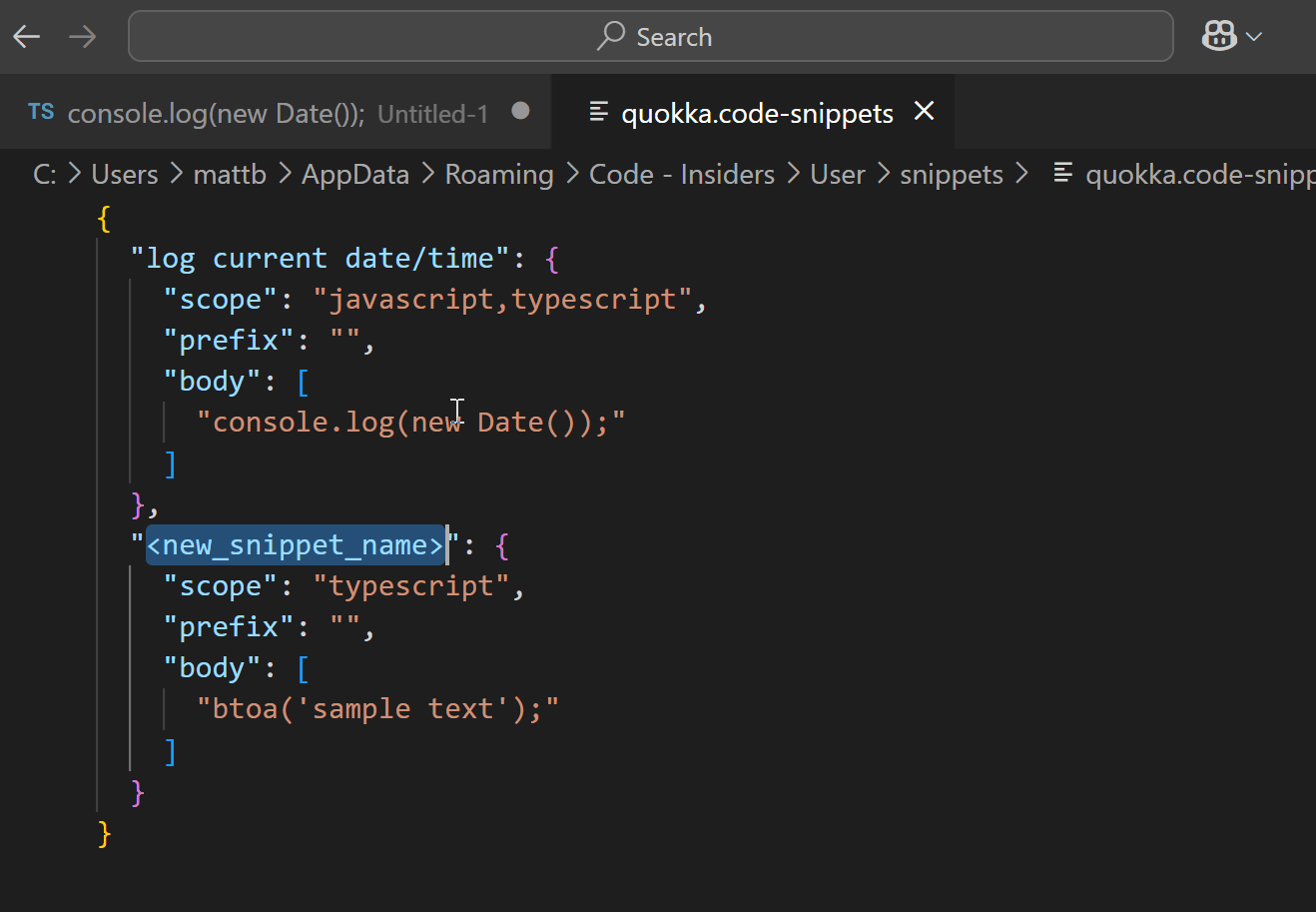Quokka - Snippets & Expanded TypeScript Support
Quokka’s mission is simple: enhance your productivity and keep you in flow. Our recent changes continue to deliver on that mission with two productivity boosting updates: Snippets and Expanded TypeScript Compiler Support.
- Quokka Snippets – are reusable templates that spin up a ready‑to‑run file, complete with autolog.
- Blazing‑fast TypeScript — switch from
ts-nodetotsxor@swc-node/registerfor faster starts and lower memory use.
Quokka Snippets

What are Quokka Snippets?
Think VS Code snippets, but tuned for experimentation:
- Available at Quokka creation time – pick a snippet when you run
Quokka.js: New Fileand your new file is pre‑populated and live. - Autolog out‑of‑the‑box – snippets enable autolog for the session, so you see values without adding
console.log(), logpoints, or live comments. - One home for all templates – Quokka stores every snippet in a single, comment‑friendly JSONC file.
Three new commands
- Quokka.js: New File - Choose a snippet → Quokka creates a new file, inserts the snippet content, and turns on autolog.
- Quokka.js: Create Snippet from Selection - Highlight code → convert it into a snippet entry in the snippets file.
- Quokka.js: Edit Quokka Snippets - Open the snippets file directly for hand‑editing (JSONC: comments allowed, custom formatting may be normalized).
Why you’ll care
- Start faster – spin up a runnable playground in seconds.
- See results instantly – built‑in autolog shows runtime values as you type, no extra logging required.
- Stay consistent – provides the ability to curate snippets to reuse across a team and across projects.
Ideal use cases
- Setup‑heavy frameworks (React, Vue, Svelte) where a ready scaffold beats copy‑paste.
- Recurring utility test beds (e.g. date helpers, regex checks, data‑format converters).
- Teaching & demos - create a library of pre‑baked scenarios that run at the press of a button.
Please Note: Quokka Snippets are a PRO feature.
Expanded TypeScript compiler support
When Quokka first launched, ts-node was the only practical way to run TypeScript directly in Node.js,
so we built a tight integration around it. Over time, however, the ecosystem moved forward:
- Performance pressures grew – larger module graphs made for longer cold‑start times and increased memory use.
- New compilers emerged – tools like
tsx(esbuild‑powered) and@swc-node/register(SWC‑powered) rewrote the rule‑book on speed, ESM support, and resource footprint.
While ts-node is still reliable, it’s no longer the fastest (or the most memory‑efficient) option. It also no longer
receives regular updates like tsx and @swc-node/register.
By adding first‑class support for tsx and swc‑node, Quokka lets you use the tool that best fits your project.
Getting started
If your project already uses tsx or @swc-node/register, Quokka will automatically detect and use
the appropriate compiler. When multiple compilers are installed, Quokka will use them in order: tsx, @swc-node/register,
and then ts-node as a fallback.
If you don’t have a compiler installed in your projects and don’t want to use ts-node then you can install a
compiler to be used instead by running one of the following commands in your ~/.quokka directory:
- tsx:
npm install tsx - swc:
npm install @swc-node/register
Find more details in the Quokka TypeScript docs.
Tweet us at @wallabyjs or drop a line at hello@wallabyjs.com.
Thanks for coding with Quokka! 🚀